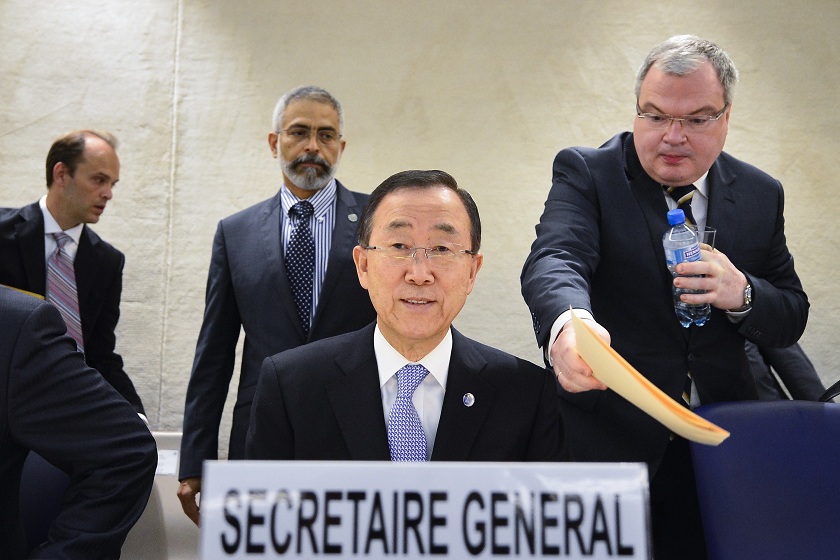WASHINGTON, DC: Even as the squeeze in interbank lending has started to ease after the rescue of financial systems across the advanced countries, falling economic indicators have sent stock markets tumbling. Pressures on emerging-market countries, which were once thought by many to have “decoupled from the rest of the world, have intensified as foreign loans are called in and assets sold off.
With fear gripping consumers, companies, and countries worldwide, talk has turned from a moderate advanced-country recession to a major world depression. A sense of despondency has set in that nothing can be done to stop it.
What is going on? Were the measures taken two weeks ago to shore up the financial system simply wrong? Absolutely not. The provision of liquidity, the recapitalization of banks, more uniform deposit insurance across the advanced countries – these were all correct and necessary measures. But they were only the first installment on what needs to be done.
In the advanced countries, the fall in asset values and, more generally, fear of what comes next has shattered consumer and business confidence. Consumption is dropping, and companies are cutting investment. The financial crisis has created a sharp fall in demand, what economists call a “Keynesian recession.
To help confidence revive, there is no alternative but to use macroeconomic tools to boost demand and sustain output. Monetary policy can be used in countries where interest rates remain high, but its effectiveness in a credit squeeze is likely to be limited. Fiscal policy must, therefore, play a central role. Fiscal expansion is always risky, as it adds to debt and raises dangers later. But, given where we are, the benefits exceed the costs in countries with sustainable debt.
Emerging-market countries face an additional problem. Not only must they contend with the prospect of falling exports and confidence; they also are the latest victims of a financial crisis that started in the United States, traveled to Europe, and now has swept across their borders.
Foreign banks are cutting credit. Foreign investors are repatriating their funds on an unprecedented scale. Ironically, the measures being taken to resolve the crisis in advanced countries are making it more attractive to bring money home, making life harder for emerging-market countries.
In order to shore up their financial systems and overall demand, emerging-market countries must be ready to take actions similar to those pursued by the advanced countries. But the recent prosperity of many of these countries has come from access to global capital. A sudden stop to such flows is a severe blow and raises special challenges that cannot be solved by these countries alone.
So the advanced countries must be ready to provide the required financing, and to do so on an unprecedented scale. The alternative is the prospect of widespread debt default, banking controls, and protectionism – an outcome that would set back these countries, and the global economy as a whole, for years to come.
The IMF has the wherewithal to commit up to $250 billion. We have set in motion the internal procedures and facilities that will allow us to provide resources quickly, with conditions limited to the core crisis-policy response at hand. In addition, the Fund is working on a new liquidity line to provide resources immediately to strongly performing emerging markets with sound policies and fundamentals.
This should give confidence to investors. But, given the scale of capital flows, I am also urging the governments and central banks of the advanced countries to provide parallel financing to the IMF’s crisis-response programs. I also am convinced of the need to find ways to bring into play the resources of countries with large reserves. The Fund will play its part, but all these actions are needed to reinforce the credibility of the coordinated global response to the crisis.
We must also think ahead – especially in regard to low-income countries in Africa. Because of their limited participation in international financial markets, these countries have, so far, been somewhat shielded from the storm. But it is an uneasy calm that probably will not last.
Many low-income countries will suffer from the decline in commodity prices. Others, including those that were becoming the new frontier in emerging markets, may see their access to foreign capital dry up. They, too, will need help from the international community. Lending by the IMF and global development banks, and the maintenance of donor aid at current levels, will be essential if we are to avoid new human tragedies.
The dynamics of fear are potentially catastrophic, but these dynamics can be broken. Whatever the problems in the financial system, the massive improvements over the years in technology, productivity, and social progress – the real fundamentals – are a genuine testament to the power of globalization as a force for good. It may be too late to avoid a recession in the advanced countries and a slowdown in emerging and low-income countries. But it is not too late to avoid a global depression. Dominique Strauss-Kahnis Managing Director of the International Monetary Fund. This commentary is published by DAILY NEWS EGYPT in collaboration with Project Syndicate (www.project-syndicate.org).


